I wrote this article in Japanese and translated it into English using ChatGPT. I also used ChatGPT to create the English article title. I did my best to correct any translation mistakes, but please let me know if you find any errors. By the way, I did not use ChatGPT when writing the Japanese article. The entire article was written from scratch by me, Saikawa Goto.
Introduction
Movies and books covered in this article

Three takeaways from this article
- The movie should be seen as depicting the reality of the suppression of diversity by those in power, rather than just “discrimination against LGBTQ.”
- Kadyrov, the dictator who claims “there are no homosexuals in Chechnya,” and a state that grants families the right to kill homosexuals.
- The film portrays the struggle of brave victims and organizations that support them in risking their lives to escape the country.
Self-introduction article


Published Kindle books(Free on Kindle Unlimited)
“The genius Einstein: An easy-to-understand book about interesting science advances that is not too simple based on his life and discoveries: Theory of Relativity, Cosmology and Quantum Theory”
“Why is “lack of imagination” called “communication skills”?: Japanese-specific”negative” communication”
The quotes used in this article are based on notes taken at the movie theater from movies in Japanese and are not direct quotes from the foreign language original movies, even if they exist.
The Harsh Reality of Ongoing “Gay-Cleansing” in Chechnya and the Life-Threatening Struggles of its Supporters
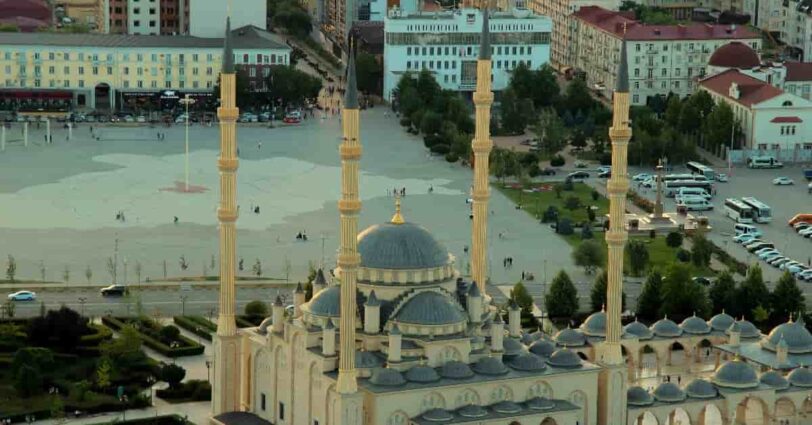
Chechnya, a southern region of Russia, is a dictatorship established with the support of President Putin. In the midst of Russia’s ongoing invasion of Ukraine, a movie that portrays the abnormal situation similar to the “Holocaust” happening in such a country has been released.
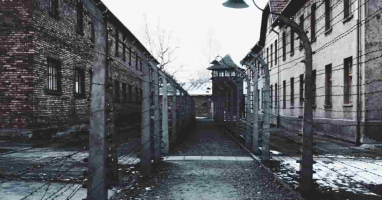
The madness of the heinous acts happening in a country strongly influenced by Russia is beyond comprehension, especially their complete lack of understanding for the LGBTQ community. It makes one strongly feel the horror and incomprehensibility of the country that is Russia.
We should not see the events happening in Chechnya as simply an “LGBTQ issue.” This is a story of “abuse of power.” In one scene in the movie, a family member of a gay character says:
This could happen anywhere in the world. When people gain power, some will abuse it.
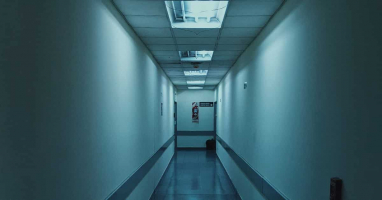
A court in the United States has made a decision that could take away “the right to abortion”. In Japan, “allowing married couples to have different surnames” is still not progressing. I don’t intend to say that “diversity” is the most wonderful thing, but I believe that “being diverse” is valuable in many situations, and the world is supposed to be moving towards the direction of “how to recognize diversity”. Even in such a situation, I feel very scared that a judgment like “not recognizing diversity” is made naturally.
I am not LGBTQ, and neither maybe you who are reading this article. However, I hope you don’t think “it has nothing to do with me.” I think it should be taken as a story of “how power easily takes away ‘diversity'”.
Kadyrov, a Dictator Who Asserts that “There are No Homosexuals in Chechnya”

In this movie, there is a scene where Kadyrov, the president of Chechnya, a dictatorship, appears to receive an interview, probably from foreign media. The reporter asked, “Reports of abuse against sexual minorities in the Chechen Republic have been reported. What do you think about this?” Kadyrov responded with a clear assertion after saying, “Did you come here just to ask such nonsense?”
There are no homosexuals in Chechnya. If there are any, take them to Canada or something.
The Chechen Republic is a country where the head of a country makes such claims without shame.

Chechnya is a fairly closed country with its own culture and language, and the majority of its population being Muslim. In such a country, “homosexuality” is treated as “dishonorable.” If it is discovered that there is a homosexual in the family, it is generally believed that they should “redeem themselves with blood.” In other words, it means “solving the shame of the family by ‘killing’ it.”
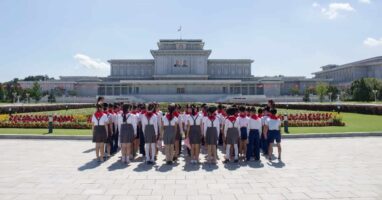
A woman named Anya, shown at the beginning of the film, called David, a member of a support group who asked for help, and complained, “If things stay like this, my father will kill me.” Although this scene is at the beginning of the movie and the urgency of Anya’s appeal may not be fully understood by the audience. But if one knows that it is a country where it is commonplace to be killed by the family if one is found out to be homosexual, one will likely understand the urgency.
Anya’s uncle found out about her sexual orientation and threatened her, saying, “If you don’t have sexual relations with me, I’ll tell your father.” According to David’s analysis, even if Anya had a relationship with her uncle or if her father found out about her sexual orientation, she would be quietly killed within the family. While the fact that Anya’s father is a high-ranking government official is somewhat relevant to this judgement, it seems that the situation is not much different even in non-special family environments.
In the Chechen Republic, it is “not punishable by law” to detain and use violence against homosexuals. In other words, it can be said that the country is promoting “revenge within the family”. The movie also shows surveillance camera footage of sexual minorities being attacked in the city and elsewhere. In the footage, many people were captured, beaten, and had their hair cut off.
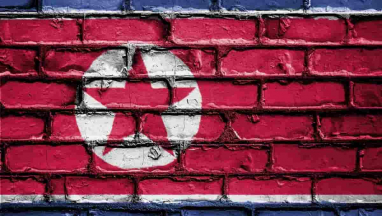
One of the most shocking images was of someone trying to drop a rock so heavy that they couldn’t lift it with both hands onto the face of a person lying on the road, who appeared to be a woman. The video ended before the rock was released from the person’s hand, but it is likely that the woman lying on the ground had died.
It’s safe to say that the situation was terrible.
During interviews with foreign media, President Kadyrov used the phrase “ethnic cleansing.” This is a phrase that would remind one of the Holocaust in Nazi Germany. David also expressed the abnormality of the situation with the phrase “It’s like going back to the time of Stalin or Hitler.” There have long been allegations of torture being carried out under the name of “education” in China’s Xinjiang Uygur Autonomous Region, but no matter how one twists and turns the logic, such a situation should be called a cruel “modern-day Holocaust.”
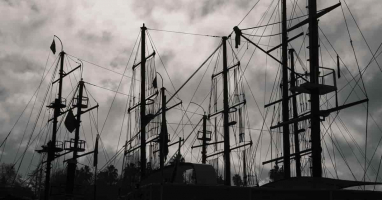
It’s truly shocking to me that something like this is happening in the modern world.
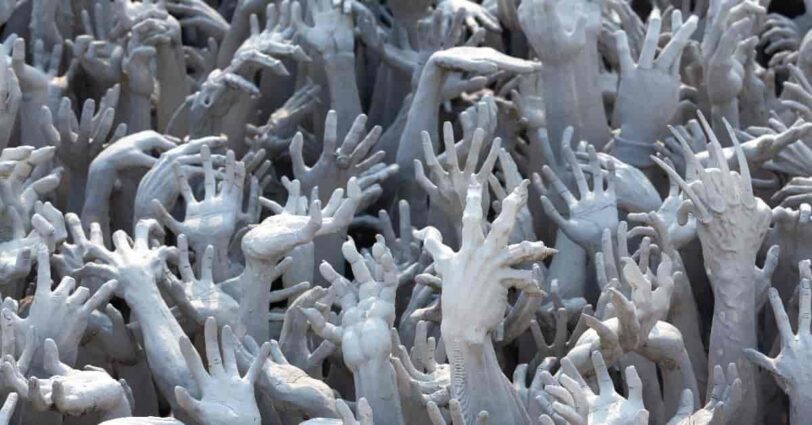
As mentioned earlier, the main reason Kadyrov can continue his dictatorship is because he has the support of President Putin. The persecution of “sexual minorities” in the Chechen Republic is not being led by Putin, but it is a fact that he is turning a blind eye to it. David also argues that Putin is clearly responsible.
This is because the submission of a “petition protesting the detention and torture of sexual minorities and requesting an investigation” was obstructed. Supporters were planning to gather many signatures and submit the petition to Moscow, but they were detained on the pretext of “holding an unauthorized assembly” just before that. Russia has no intention of improving the situation in the Chechen Republic.
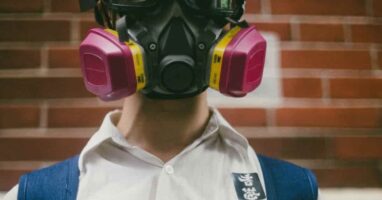
The Start of “Gay-Cleansing” and the Struggle of Support Groups
David said, “It wouldn’t be strange if something similar happened throughout Russia.” This is because the large-scale “purge” targeting “gay” in the Chechen Republic started with a very minor incident.
In the winter of 2017, extremely provocative gay photos were found on a confiscated mobile phone during a drug-related investigation. That was the trigger for everything. From then on, they continued to detain people one after another using the method of pressuring the owner of the photos to “expose your gay friends” and make them reveal names of other people.
In this way, an abnormal situation that can only be called “Gay-Cleansing” progressed. The “oppression” was too severe. Those who were hiding in support group shelters gave various testimonies.
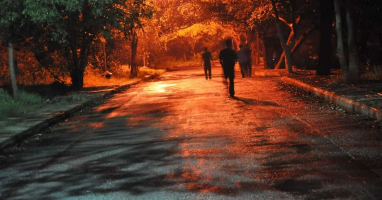
A man met someone he was interested in online and went to his house. However, the police came out of the bathroom and he was arrested and sent to a penitentiary. Another man talked about being forced to lure an acquaintance.
The situation in the penitentiary is terrible. The most impressive torture is the one where they put a rat on their back. They put a rat on their back, then cover it with a pot. They heat up the pot, and the rat tries to escape the heat by gnawing at the skin on their back. Some people have died from this torture.
In any case, the situation is terrible and horrible.
In the movie, filming is also done inside a shelter provided by support groups, but they haven’t revealed which country it’s located in. They absolutely have to make sure the location of the shelter doesn’t get leaked to the Chechen Republic, or they won’t be able to ensure safety.
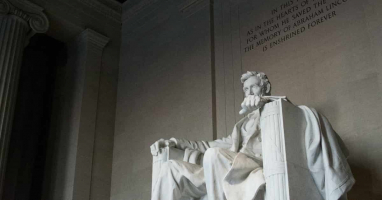
In one scene, an “abnormal situation” is depicted due to such circumstances. When one of the shelter residents attempted suicide by cutting their wrist, Olga, a member of the aid organization, shouted at the person who had just cut his wrist, saying,
Go anywhere, even Canada! Just don’t die here! You can die anytime!


At first glance, one might think “how cruel” upon hearing these words. However, the primary mission of the support group is to protect the lives of all those who reside in the shelter. Therefore, no matter what happens, an ambulance cannot be called in the shelter because it would reveal the shelter’s address. The words “don’t die here” have such a background. I think it is understandable that they have to speak in such a way because they are in such a desperate situation.
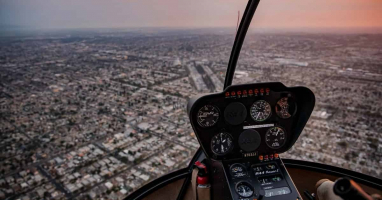
The movie was full of surprises, but what was most shocking was the disappearance of the famous singer. In the movie, news footage reports that Zelim Bakaev, a popular singer in the Chechen Republic, has been out of contact for over 10 days. While there is no clear information on whether he was a sexual minority, there were rumors to that effect. David asserts that “it is certain that his sexual orientation was the cause of his disappearance.” The movie ends with the subtitle “Zelim Bakaev’s whereabouts are still unknown.”
This is Chechen Republic.
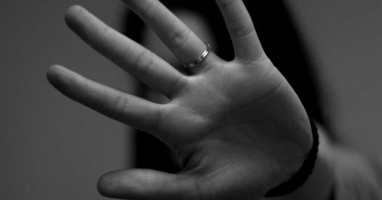
“Grisha” Takes the Step of Filing a Criminal Complaint
The reason why “Grisha” is written in parentheses is because it’s a pseudonym. In this movie, all the characters have fake names, but “Grisha” is a special case. The film “Welcome to Chechnya” covers various characters and situations, trying to capture the current situation in a multifaceted way, but as the movie progresses towards the latter half, the focus narrows down to one thing. That is “Grisha”.
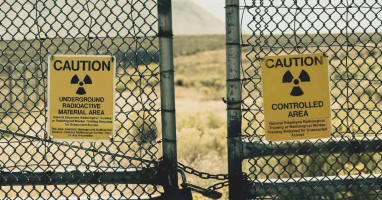
He also experienced detention and torture because of his sexual orientation. He thought he was going to die, but was released without being given any reason. After that, he took refuge in a shelter supported by an aid organization.
He is not originally from Chechnya. He is a Russian, and although I don’t remember exactly, he used to travel around various parts of Russia for events, etc. He visited Chechnya for a honey-related event and stayed there. He had a “kind” image of Chechen people, but…
I was surprised at how the Chechen people, who used to be so kind, could become so violent,
and said he was amazed at the transformation that had taken place since the “purge” that began so abruptly.
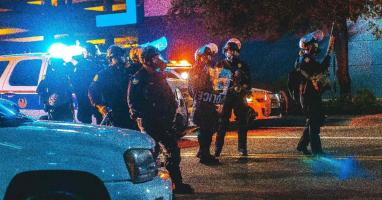
He has been in a relationship with his partner for 10 years. Luckily, he wasn’t with his partner when he was arrested, and he was probably somewhere in Russia. He said that “not coming to Chechnya together was the only salvation.” He made the decision to call his partner to live together at a shelter run by a support group, even though they hadn’t seen each other in over a year. His partner came to the shelter, giving up their family and even their dream of getting a degree, for the purpose of “living with Grisha.”

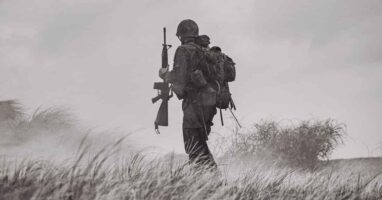
In the movie, “Grisha” was initially depicted only sporadically, but gradually became the center of the story.
Actually, the fact that “Grisha” was not Chechen made the situation even more complicated. The police who detained and tortured him did not realize he was not Chechen, and then took outrageous actions, even threatening Grisha’s family. Although the details were not explained, it seems that they took this measure to conceal the fact that they had detained and tortured someone who was not Chechen. If the person had been Chechen, no one would have reported the police for their actions, as the agreement among Chechens is to “kill homosexuals within their families.” However, this would not be the case for someone who is not Chechen. Therefore, they decided to silence him in advance. It can only be said that their nature is rotten to the core.

The support group determined that it was necessary for all of “Grisha’s” family to evacuate. His sister was forced to divorce her husband because of it. The “purge” in Chechnya has a negative impact on various aspects.
Then why does “Grisha” become the center of the story?
The support group was at a standstill. They are reaching out to as many sexual minorities as possible, but ultimately, they cannot achieve a fundamental solution without stopping the “Gay-Cleansing” happening in Chechnya. To do that, they have no choice but to move Russia, but even if the group requests an investigation from Russia, they turn a deaf ear and say “there are no victims”.

However, in a sense, the statement “there are no victims” is correct. Victims cannot come forward. Testifying that they have been subjected to “Gay-Cleansing” in the Chechen Republic means death. Even if they had escaped from the Chechen Republic, the situation would be no different. Revealing their face and name and speaking out as a victim is a dangerous thing that could put their life at risk.
Still, the support group determined that “without victims speaking out, the situation cannot be resolved” and discussed with each of the individuals they rescued. As a result, “Grisha” made the decision to pursue criminal charges, despite various conflicts and struggles.
Later, “Grisha” held a press conference in front of media outlets worldwide, where it was revealed that his real name is “Maxim Lapunov.”

The Aftermath of a Brave Appeal and the Power of “Digital Masks”
After changing his name to Maxim, Grisha appeared in court in Moscow, revealing his face and name, and spoke out about the harm he had suffered. The support group naturally applied for witness protection programs, but one can only imagine the fear that Maxim must have felt. He had fled from the dangerous Chechen Republic, was living in a safe place provided by the support group, but chose to return to Russia, his birthplace, to speak out about the current situation in Chechnya. Taking action that could anger Russia must have been too frightening for him, and he had repeatedly expressed his fear. Of course, it was natural.
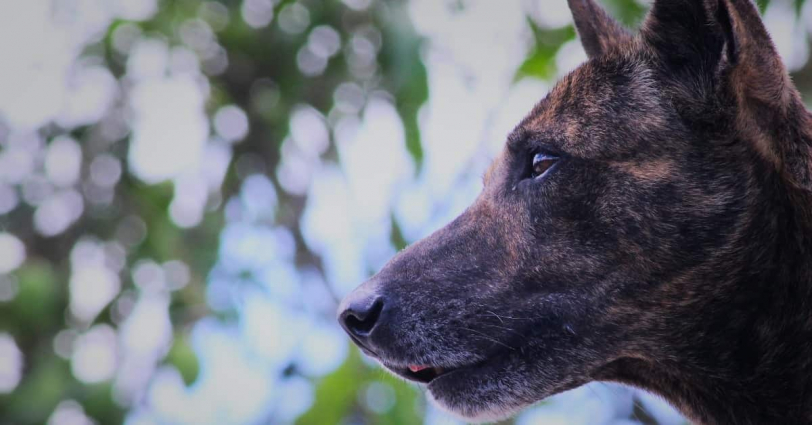
Thanks to Maxim’s courageous actions, Russia could no longer dismiss his appeal by saying “there are no victims,” and a formal trial was held. However, the outcome was disappointing. One day, the Russian court simply stated that “this case is dismissed” in a brief hearing. That was the end of it. Maxim is now reportedly filing another appeal with the European Court of Human Rights.
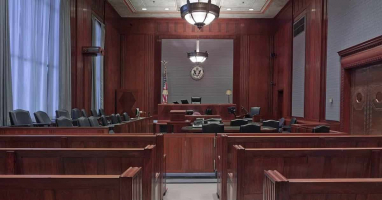
David said as follow.
We can prove Chechen crimes, but we don’t know how to get Russia to pay attention to this issue.
This movie was made before the invasion of Ukraine. Russia, which has ignored international public opinion and invaded Ukraine, is unlikely to listen. It’s a truly frightening world.
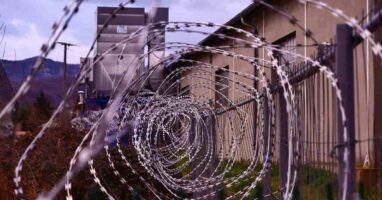
Lastly, let’s talk about “digital masks”.
As mentioned earlier, all the characters have fake names. This is because they don’t know what inconvenience might arise if their identities are revealed. Therefore, it’s natural that their faces should also be hidden. However, in the movie, there is no mosaic on the faces of the characters.
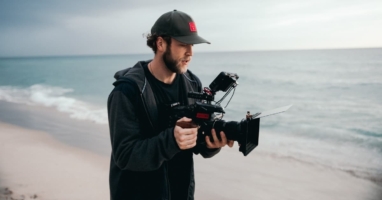
At the beginning of the movie, there is a note that says:
Digital processing has been applied to their faces to protect the safety of evacuees.
I couldn’t understand the meaning for a while after I started watching the movie. I didn’t feel like it was heavily “digitally processed” or anything. However, gradually, I began to feel some discomfort. It’s like the images around the faces of the characters become subtly blurry and unnatural, which I only noticed after it was pointed out. Seeing such scenes, I remembered the “digital processing” display at the beginning and began to think, “Could it be…?” Is it not a mosaic but another person’s face that has been inserted?
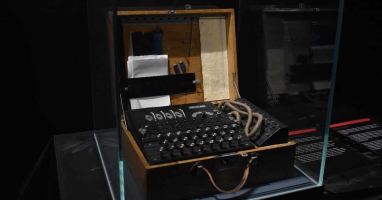
For a while after I had anticipated that, I was also half-doubtful. Since I didn’t know about the existence of the technology called “digital mask,” I doubted whether it could really be done. Although it may feel slightly unnatural, it’s just a sense of incongruity that I wouldn’t have noticed if I hadn’t been told. I wasn’t sure if it was possible to fit another person’s face so precisely, depending on the expression of the original person.
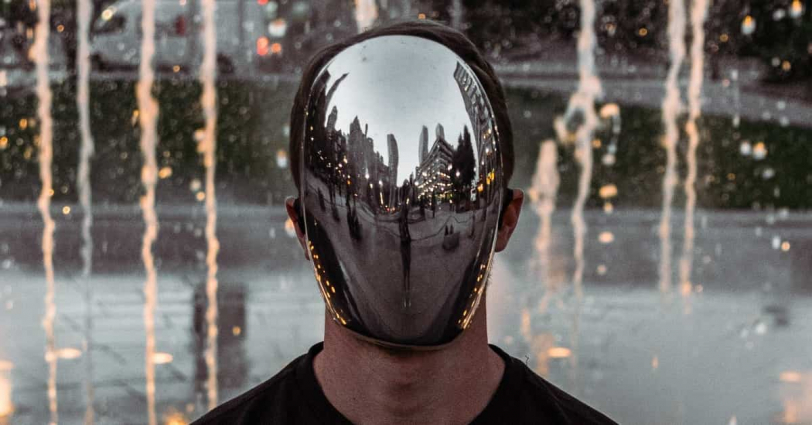
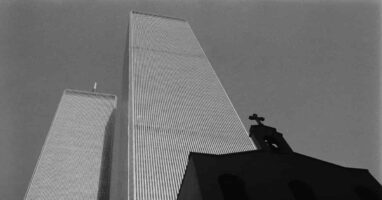
In that state, the scene where “Grisha” holds a press conference arrives. And the moment his real name, “Maxim Lapunov,” is revealed, the “digital mask” falls off his face. Although it was somewhat expected, it was quite a shocking sight. In the movie, there are scenes where various changes are added to the facial image, such as when the lighting is dark or when smoking is involved. Nevertheless, it is possible to fit another person’s face without giving a strong sense of unnaturalness. I was amazed by the progress of such technology.
On the official website, it is written that “this technology was not developed for this movie.” However, it was also explained that its usage is very unique and different from its conventional application. Without mosaic, it’s easier to imagine the situation of the subject, as we can see their facial expressions. I felt that this technology could become widely used in documentary films and other mediums in the future.
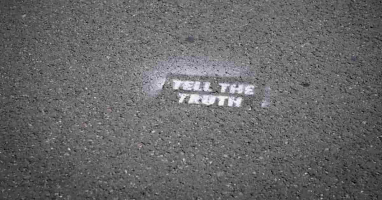
Conclusion

According to the support group, 151 people were evacuated and resettled abroad in the two years until the end of the film production. However, still more than 40,000 people are unable to escape abroad and are living in hiding. The filming was done before the pandemic and the invasion of Ukraine, so it is unimaginable how these events have affected the current situation in Chechnya.
Anyway, I just hope that people in such difficult situations can regain a peaceful life as soon as possible, no matter what form it takes.

Published Kindle books(Free on Kindle Unlimited)
“The genius Einstein: An easy-to-understand book about interesting science advances that is not too simple based on his life and discoveries: Theory of Relativity, Cosmology and Quantum Theory”
“Why is “lack of imagination” called “communication skills”?: Japanese-specific”negative” communication”

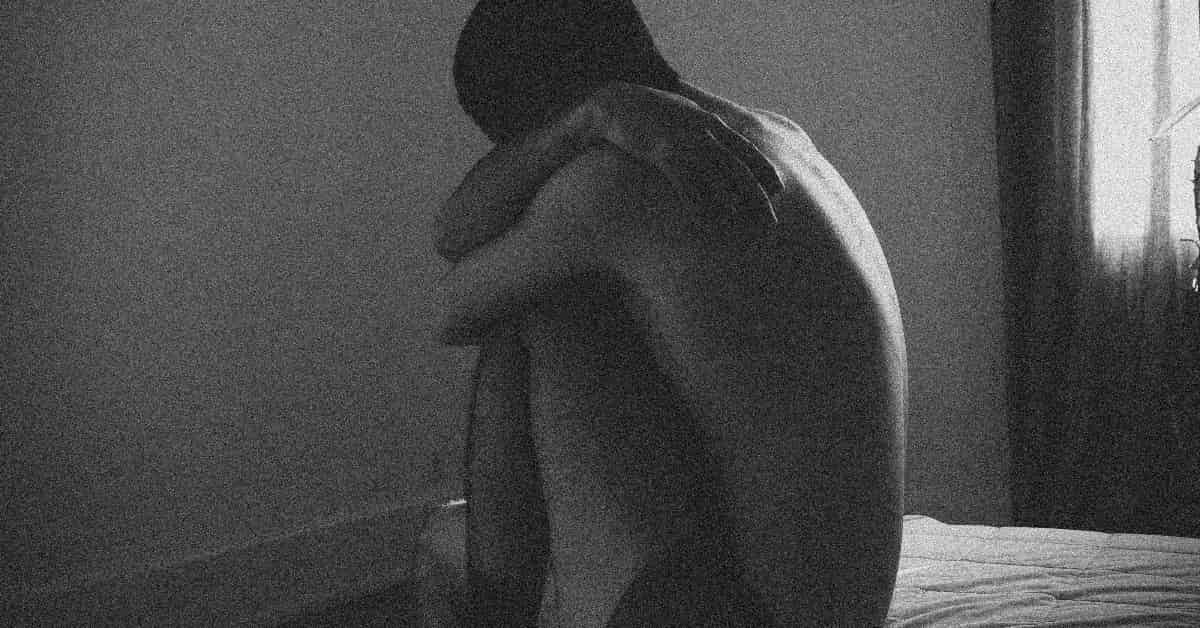





コメント